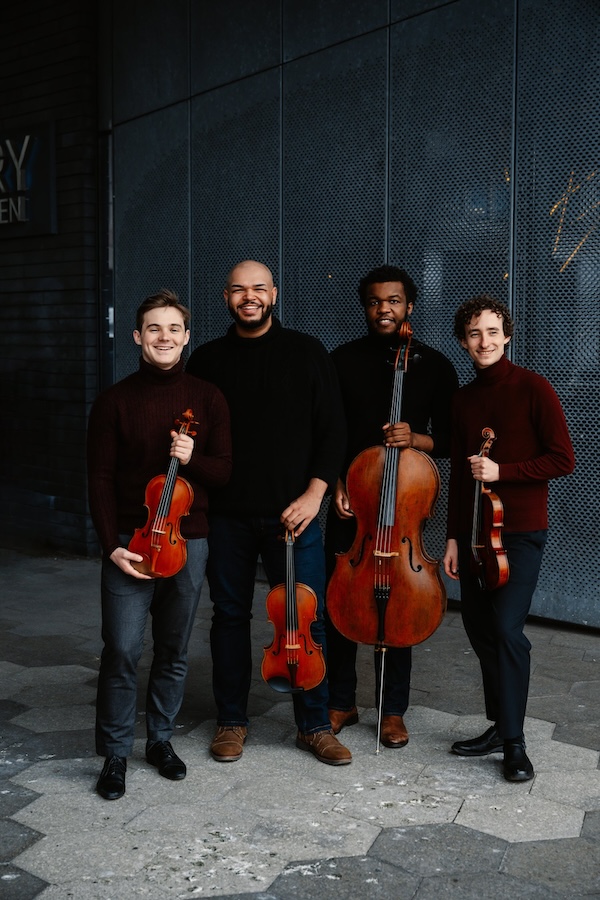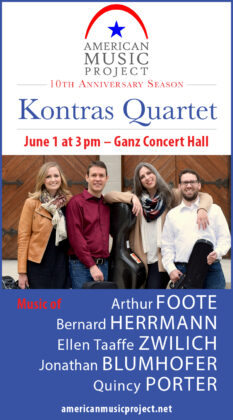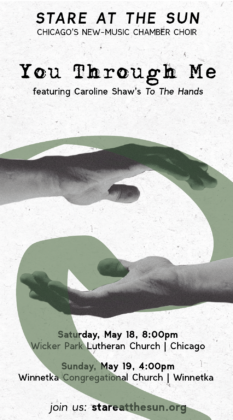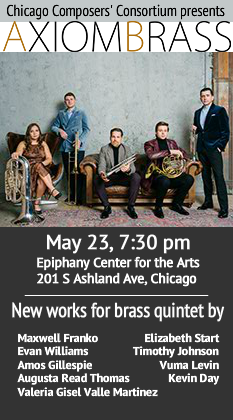Isidore Quartet makes impressive Chicago debut at Mandel Hall

The Isidore String Quartet has made local suburban appearances in its young life, including last year at Northwestern’s Winter Chamber Music Festival in Evanston.
Friday night marked the Chicago debut of the ensemble in the final event of the UChicago Presents season. And while there is inevitably room for artistic growth, the Isidores largely lived up to the advance buzz at Mandel Hall.
Winners of the 2022 Banff International String Quartet Competition, the Isidore Quartet received an Avery Fisher Career Grant last year. Throughout the program, the group displayed a polished sonority and well-balanced, tightly synchronized ensemble with nearly faultless intonation.
While the quartet was impressive technically, there were reservations about some interpretive decisions as well as an inevitable lack of artistic seasoning at times. Still, with classical music increasingly a hard sell—even the usually well-attended Mandel Hall was less than half full on Friday—it’s heartening to know that chamber music is in good hands with such gifted young ensembles as the Isidore Quartet.
The concert opened with Mendelssohn’s String Quartet in E flat major, Op. 44, no. 3, one of the composer’s finest chamber works, which provided a worthy calling card for the New York-based group. The Isidore’s bright sound and vital style was an apt match for Mendelssohn, with notably quicksilver playing by violinist Adrian Steele, sitting first chair. Yet overall the playing felt a bit heavy for the music, with the Scherzo burly and lacking light-footed, leggiero charm.
The cautious tempos in the outer movements were more problematic. The finale should go like the wind and while the playing was energetic, it was hardly the “very fast with fire” Mendelssohn asks for. The Adagio emerged best, with the Isidore musicians’ sensitive playing nicely assaying the slow movement’s inward rumination.
A light centerpiece was offered with Dinuk Wijeratne’s The Disappearance of Lisa Gheradini. The title woman is the Lisa of Mona Lisa fame and the Canadian composer’s ten-minute work posits a fanciful take on the 1911 theft of the da Vinci painting from the Louvre and its return.
While some of the theatrical elements were a bit lame, Wijeratne’s work is enjoyable and crafted with real flair and individuality, with a Marais-like cello theme for Lisa and creeping tremolos leading up to the heist. Wijeratne’s quartet was composed as the 2022 competition piece for Banff and it’s clear that the Isidore musicians retain great affection for it, drawing all the color and ingenuity possible out of the score.
Benjamin Britten’s String Quartet No. 2 closed the evening. The finest of the English composer’s three works in the genre, the 1945 Second Quartet is typically individual, reflective of the dualistic Britten in its forward-looking elements as well as its look back at his national predecessors, in this case Henry Purcell.
It is telling that the most interpretively challenging work on the program received the finest and most convincing performance. From the Purcell-like opening drone, the Isidore musicians—violinists Phoenix Avalon (sitting first chair) and Steele, violist Devin Moore and cellist Joshua McClendon—had the full measure of Britten’s probing score. If the Mendelssohn seemed like a work in progress, their Britten felt lived-in and idiomatic, wholly in synch with the composer’s elusive style.
The WWII carnage felt palpable in this performance, with the players fluently handling the schizoid first movement’s alternation between bleak, hushed despair and stormy marcato outbursts. In the brief, ensuing Vivace, the quartet conveyed the unsettling, shadowy quality of the angular main theme as well as the ironical middle section.
The concluding Chacony is the heart of the quartet, more than twice as long as the two preceding movements. After a forceful tutti statement of the chaconne theme, the movement unfolded with a natural eloquence and finely calibrated expression—as well as the widest dynamic range of the evening—the Isidore members skillfully sustaining the arc and dramatic intensity of the 18-minute movement. With sensitive solo meditations by McClendon and Moore, the performance seemed to express the myriad of conflicted emotions—damaged, elegiac, searching, pessimistic yet hopeful—embedded in Britten’s music.
The Grossman Ensemble performs world premieres by David Bird, Vivian Fung, Felipe Lara, and Gabriel Novak 7:30 p.m. May 17 at the Logan Center. cccc.uchicago.edu
Posted in Performances




